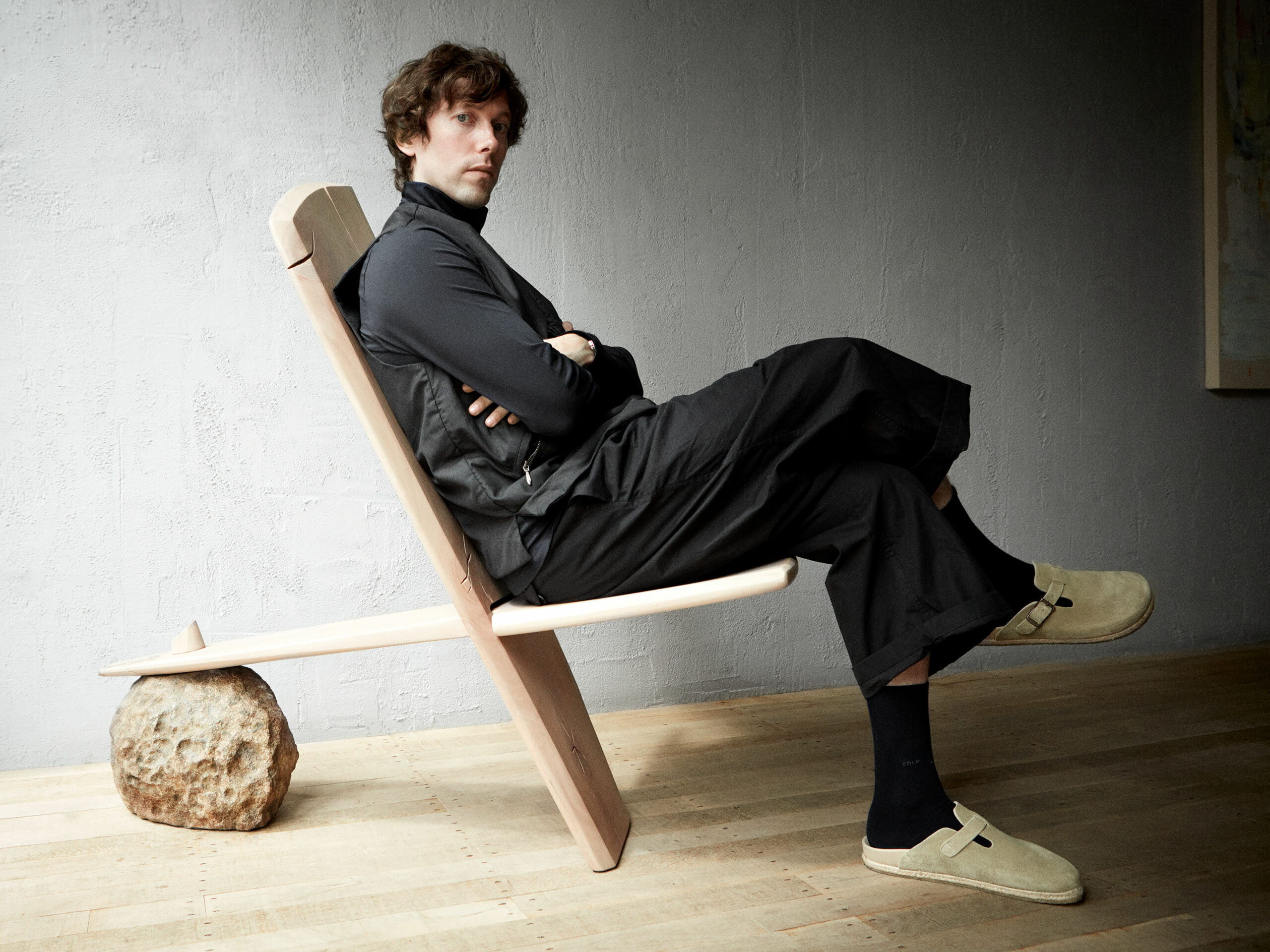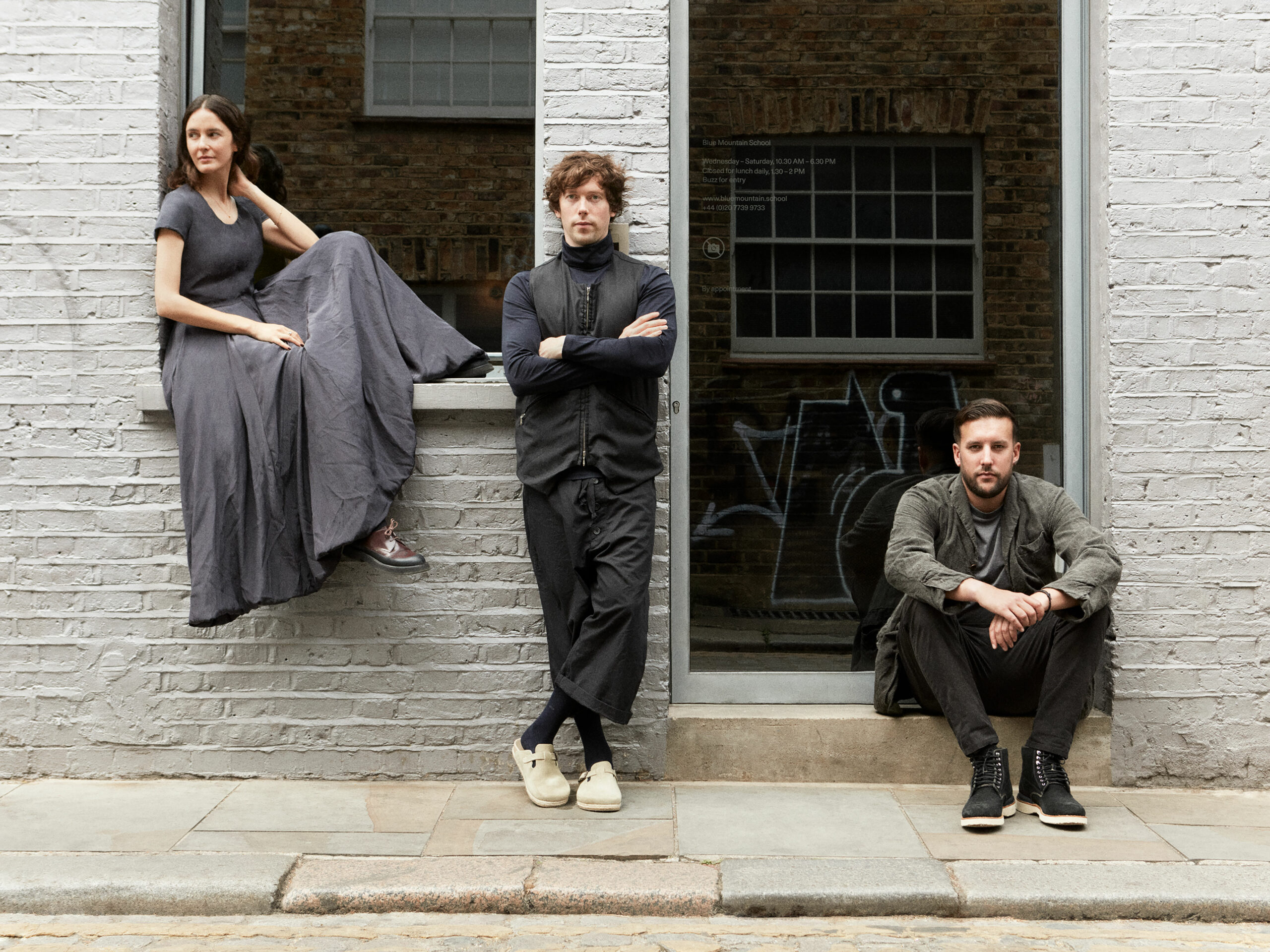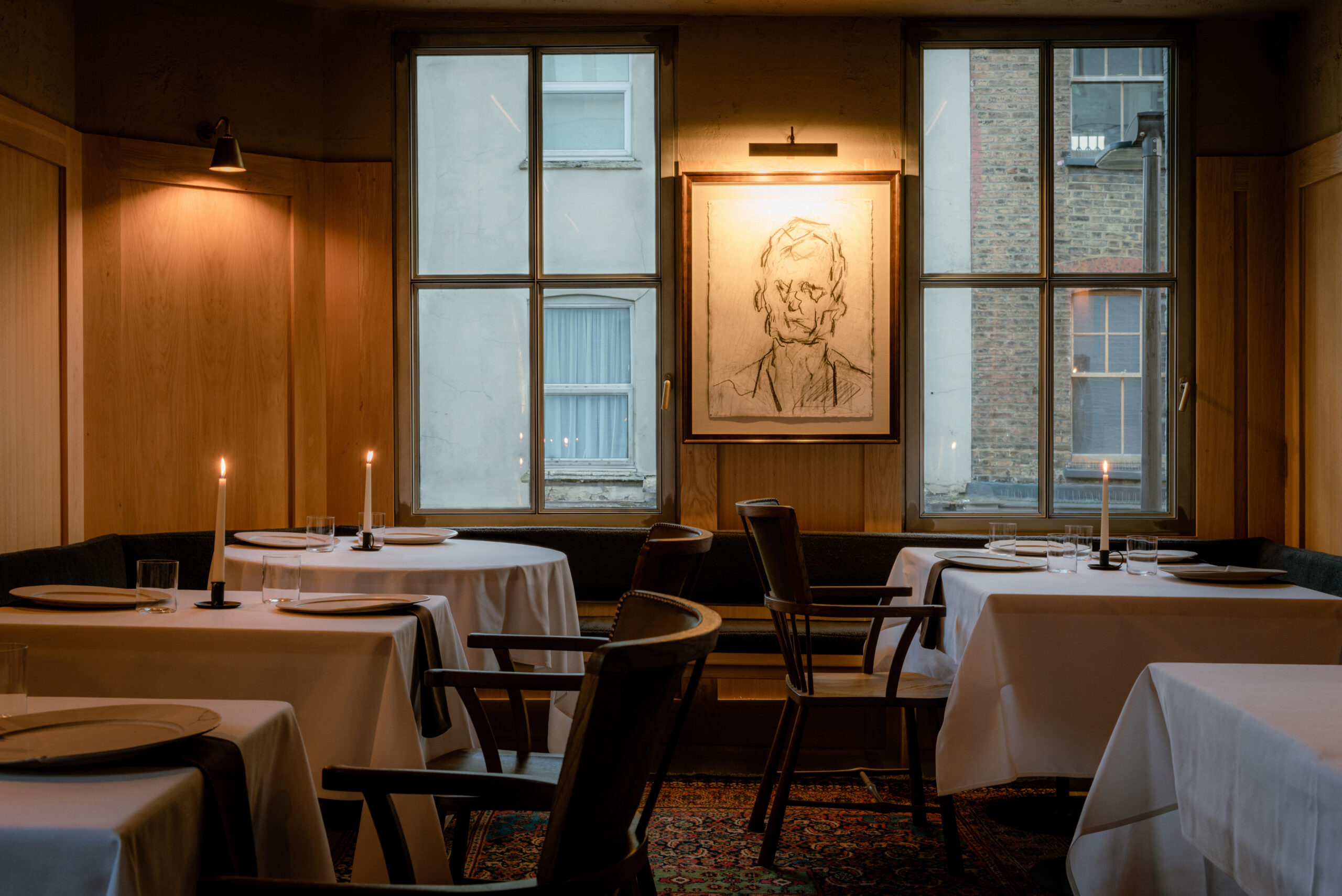James Brown on Cycene
With extensive experience spanning fashion, design and art, Blue Mountain School founders James and Christie Brown made the unexpected decision to venture into the culinary scene with Mãos, an innovative, idiosyncratic restaurant that functioned more like a dinner party. It was widely celebrated – the restaurant earned a Michelin star within its first year and cultivated a loyal customer base – but despite the adulation, they took the decision to close Mãos in early 2022.
After meeting Theo Clench, formerly of Portland and Akoko, it felt natural for them to collaborate together on a new restaurant. Harnessing their learnings from the previous culinary arm of Blue Mountain School, they conceived of a project more ambitious, with a view to sustained success. Their joint vision birthed Cycene.
Given its accomplishments, and the fact it was your first restaurant, how hard was the decision to close Mãos?
James Brown: We closed Mãos on our own terms, we had over 2000 people on the waiting list in its last month. It was an incredible journey and we achieved all that was possible with it. It was never designed or built as a space or a restaurant that could cope with the demand that was placed on it. Cycene is built for longevity; in many ways its aims are more ambitious than those of Mãos.
Does Cycene follow the same format or is it something entirely different? What did you learn from the iterations of Mãos that changed your approach to Cycene?
JB: We learned a lot from our time with Mãos. The spirit of how we feel a restaurant should be remains. Intimate, otherworldly, sincere, chef and ingredient-led. However we’ve worked closely with Theo Clench to build upon the overall experience. We added another floor – a standalone bar area open to diners only. We are very fortunate that we have an incredible team in place who have all worked with Theo in previous restaurants so there is a real sense of family that shines through which of course again is a key factor for me – harmony!
Neither of your backgrounds are in food. What was your thinking in introducing restaurants at Blue Mountain School?
JB: Food, wine and restaurants have been core to our existence and a huge source of inspiration. A lot of our good friends are restaurateurs or chefs and I always wanted to bring together food, music and design. Creating a cross-creative space that also incorporates fine dining was a natural progression for us.
Cycene’s Executive Chef, Theo Clench, previously worked at Akoko, a west African restaurant, Portland, a British restaurant, and the now-closed Bonham’s, which was French-European. How did the collaboration with him come about?
JB: Meeting Theo really came around by chance. After Mãos our plan was to take some time and reset. We were also considering the possibility of opening something outside of London, however Edoardo – who was the Exec Chef at Mãos – introduced me to Theo and there was an instant connection and alignment in thinking. He had just left Akoko and was looking to do his own project. He asked if he could cook for me which was a very personal gesture. He created an incredible 9-course menu from scratch the following day in a kitchen that he had never cooked in before and I was just blown away by the refinement, purity and elegance of what he did that day. It felt the stars had aligned and for whatever reason the project that is now Cycene was meant to be…Both myself and my wife Christie work very much on instinct and timing; often it’s how so much of Blue Mountain School happens.
The dishes have a heavy seafood focus, with some Japanese flavours thrown in. With such a broad range of ingredients from around the world, how much thought is going into sustainability and keeping your carbon footprint low? Are you making anything in-house?
JB: 95% of the ingredients we use are sourced from the UK, which contributes to a low carbon footprint. The majority of our processes are based in house. We have specialist aging chambers allowing for meat and fish, as well as fermentation lockers for the development of the bespoke soft pairing of drinking vinegars and elixirs, to be offered alongside the meal itself.
The aging chambers and fermentation lockers were part of extensive remodelling within Blue Mountain School to facilitate Cycene’s practices. What else did you have to allow additional space for?
JB: We doubled the footprint of the kitchen giving more room and space to push things even harder than before. There is no back of house to the Cycene kitchen and every element is on view. We also converted the ground floor into a new bar area for Cycene where guests spend the first part of their meal before heading up to the main dining room. The bar has direct views into the Blue Mountain School Archive, and houses a vintage sound system which plays throughout the space whilst a drink is made for guests to take a minute to pause and relax.
Tell me more about the course dedicated entirely to bread.
JB: The first course is served downstairs in the bar – house-made bread and broth served in Steve Harrison’s artisanal clay beakers sets the tone of the meal, before guests move upstairs to the dining room. Something ritualistic, elemental and warming to start the evening.
The course sets a homely feel that’s continued throughout, how exactly is that achieved?
JB: In the truest sense, the building is our home, we have owned this building for over 10 years and evolved together with the projects within it. The dining room and kitchen are located on the first floor with only 6 tables total and one service. It’s not about making it feel “like or home”, it is our home.
You curate the wine list. Is this a passion of yours and if so, how did you get into it?
JB: It’s purely a passion of mine, I have been collecting wine for the last 10 years. I don’t believe that wine should be alienating, the list at Cycene doesn’t conform to what is expected, instead it focuses on different regions, producers and processes that we really admire, showcasing them in a focused and concise way, whilst evolving regularly.
With the number of great tasting menus in London, what do you feel makes Cycene particularly special?
JB: Our aim with Cycene is far more than just another tasting menu – yes it’s a key and foundational element but the overall experience is just as equal. My background is in art, design, and culture, and combining this with food is really what we feel gives Cycene unique elements to other tasting menus in London. We believe that there is still a demand for tasting menus in London, as shown by our regulars at Maos & the bookings that have already come through for Cycene. The aim of BMS is to give context, integrity and a platform to a myriad of different artists, makers, artisans and to give their work the respect that it deserves. Cycene, also embodies these values. It’s a platform for an incredibly talented group of chefs and FOH spearheaded by Executive Chef Theo Clench which is a team of 10 for only a max of 20 covers per service. The suppliers, farmers and growers that we work with also hold this integrity. We aim to showcase Theo’s cooking with the very best ingredients available to us whilst providing exceptional service in an extremely unique environment which hopefully leaves our guests whirling and inspired – for me that has never had more value than right now during this time. We do it because we are passionate, and believe in it, not because of any financial motivation.


